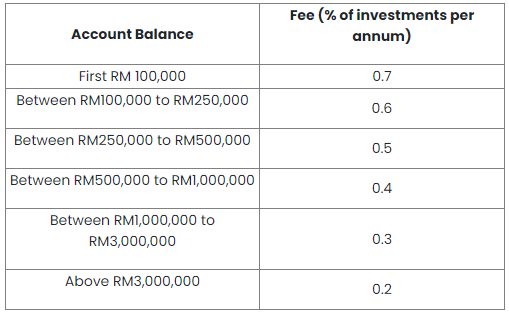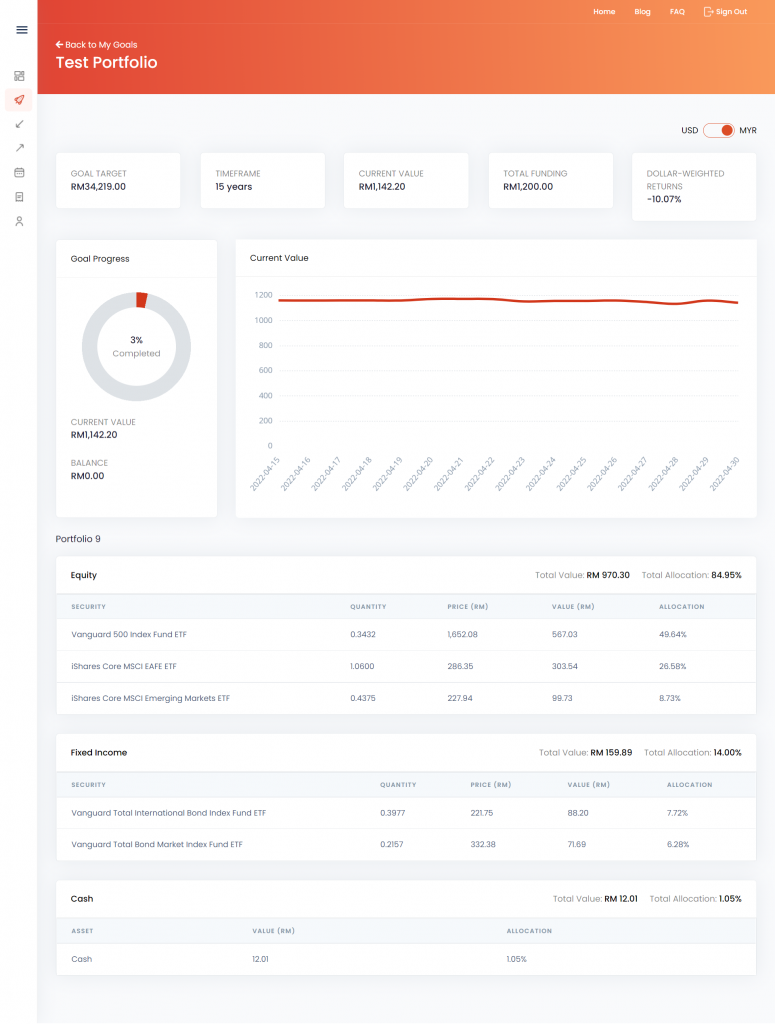Akru is a home-grown robo advisor, making it stand out from the other licensed robo advisors which have their home base outside of Malaysia. Started in 2017, Akru is one of my top picks when it comes to robo advisors. Here’s my Akru review for your reading pleasure.
Who’s Behind Akru?
Akru is cofounded and led by Tan Chong Liong the CEO, and Julian Ng the Chief Advisor. Both are well-known personalities in the financial services industry, with over 20 years experience. Tan also serves as a non-executive director for an insurance company and a venture capital firm and is a founding committee member of the Fintech Association of Malaysia. Julian was a former fund manager and has previously worked in companies including J.P. Morgan and Public Mutual and was a radio producer and presenter with the Klang Valley-based BFM89.9.
What does Akru do?
Akru is a robo advisor, which means they utilise algorithm to determine the best portfolio mix according to your risk profile. The service does this by asking you a series of questions and then recommending a mix of ETFs to help you achieve your investment goals. Users can then deposit into their account and Akru takes care of the trading and portfolio rebalancing at the backend automatically.
What makes Akru different?
My first impression of Akru was quite positive. Being a home-grown robo advisor FinTech company, naturally I’m slightly biased but I believe they have the users’ best interest at heart.
Akru promises a low fee of 0.7% over your total investment amount. Fees impact your investment over the long run, so the lower they are, the better, especially when you take compounding into account.
Akru currently has 10 different portfolios based on your risk profile, goals and timeframe, and users are typically sorted into 3 different client profiles namely: Low-Risk Larry, Moderate Mary and High-Risk Harry.
How to Deposit into Akru Account?
Being a startup, Akru strives to cut down costs and thus there is only the manual option of transferring via online bank transfer. Though this is a tad inconvenient, you can easily get past this by following these steps:
- Set up a recurring bank transfer from your online banking facilities
- On the day of the bank transfer, login to your Akru account and initiate a deposit
- Akru will automatically update your investment balance once your bank transfer has been received.
That’s it! I have tried this method and it works smoothly. Though it’s not fully automated, I don’t really mind the extra steps.
What Does Akru Invest in?
I set my risk profile to maximum, so my profile is currently set to High-Risk Hary. Under my personalised profile, I was sorted into portfolio type 9 whereby 85% of the portfolio is invested in equities, while 15% is invested into fixed income.
Equity
- Vanguard 500 Index Fund ETF
- iShares Core MSCI EAFE ETF
- iShares Core MSCI Emerging Markets ETF
Fixed Income
- Vanguard Total International Bond Index Fund ETF
- Vanguard Total Bond Market Index Fund ETF
Bear in mind this composition should be different if you chose a different risk profile at the initial setting up of your account.
What Fees Does Akru Charge?
From their FAQ, Akru charges a tiered fee structure depending on your total amount invested.

How is My Experience Using Akru?
To be honest, the initial user experience was decent but not fluid and buttery-smooth compared to other more established robo advisors like StashAway. Akru only has a web interface and there are no mobile apps so far. This is understandable, as I believe they are focusing on getting more users instead of spending efforts and funds on shiny interfaces. This was stated plainly in The Edge’s interview with Julian published on 1/10/2020.
Ng explains that Akru has decided to go with a web-based model for the time being because app development is expensive… He recognises that having a proper mobile app is necessary and the team aims to develop one in due course.
Interview with The Edge, published on 1/10/2020
The web dashboard serves its purpose well enough. After signing and the usual user KYC, I was asked a series of questions to determine my risk profile and goals. Recently, Akru has updated its dashboard look so it feels cleaner and sleek now, so it’s all good. No complaints so far.

How is Akru’s Performance So Far?
Akru is part of my public money experiment pitting 6 different robo advisors against each other started in April 2021. My Akru portfolio came in 4th in 2021, with a -5.54% one-year total return since inception as of 28th April 2022.
Should You Invest with Akru?
I don’t see why not. Akru is a very decent solution, plus you get to support a Malaysian FinTech company. I’d like to see them succeed, so I’m hoping to see constant improvements being made to the platform in the future.
If you’ve invested into Akru, feel free to leave some comments below and let me know your experience!

any updates on how ur investment with akru is doing so far?
Will do a review soon. Haven’t been adding for past few months.